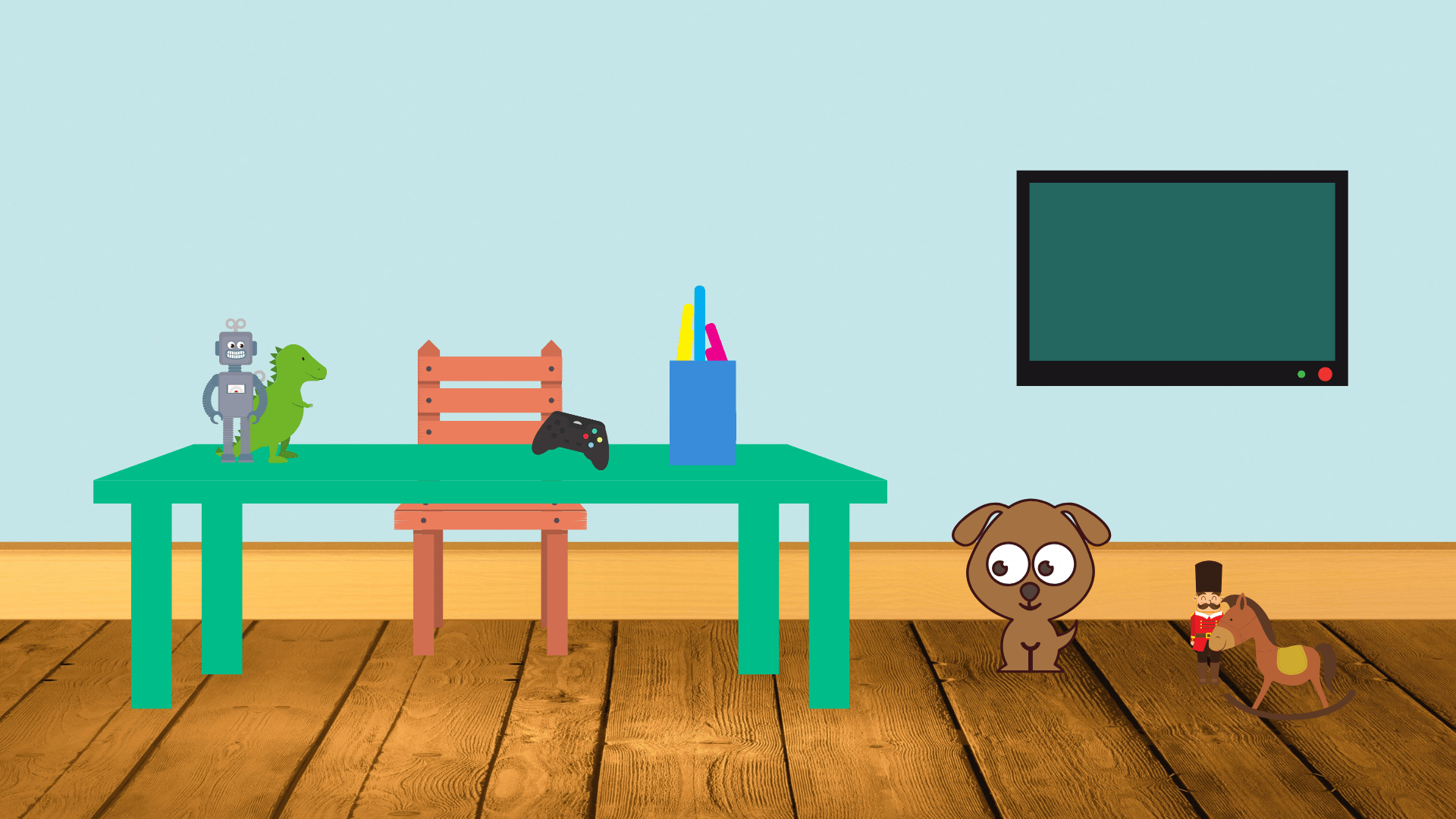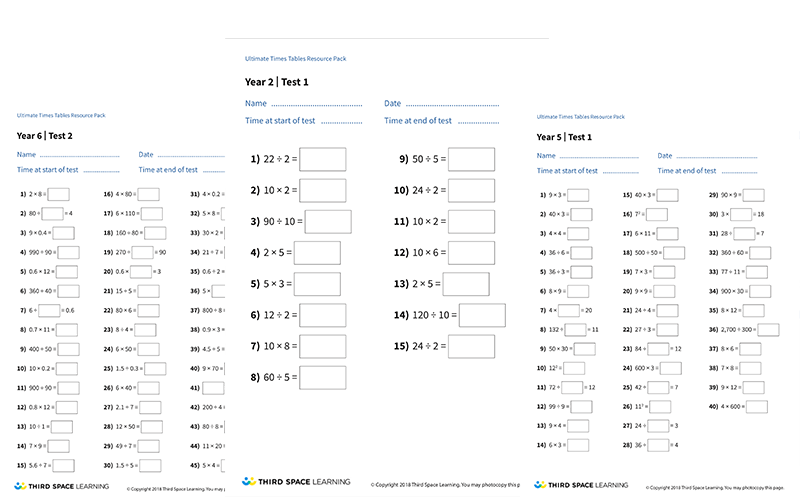The Best Primary Homework Help Parents Can Give Their Children
Figuring out how to help with primary homework is no mean feat. At times it can seem that your child’s school is handing out a never-ending stream of worksheets, books and tasks to tackle, and more often than not this leads to a sentence dreaded by most parents: “Mum/Dad, I need help with my school homework!”
Well, if just seeing that sentence written has brought back bad memories of figuring out fractions, mastering multiplication or dealing with division, you’ll be pleased to hear that we are here to help.
Research has shown that parental support can play a huge role in a child’s education, and with pressure mounting to support your child in their education it can all feel a little overwhelming for parents.
This doesn’t have to be the case though, and in this blog we will be looking at how you can help your child with their maths homework and make after school more enjoyable!
Blog Contents:
- What do parents need to know about primary school homework?
- Why is homework important for your child?
- Understanding how much homework your child gets from their school
- Why parental engagement with homework is important
- Top tips to help with homework
- Reasons routine is important
- Why you should focus on the ‘can do’s’ rather than the cannot’s
- Why you shouldn’t worry if you don’t know the answers yourself!
- How you can create the perfect homework haven
- Mastering motivation for homework
- Homework hacks you can use to get the job done faster
What parents need to know about primary school homework
Before you think about how to help your child with their primary homework, it is important to understand a little more about why they have it in the first place.
How much homework they should be getting, how difficult it should be and the debate as to whether or not they should have any work to do at home in the first place are questions raised by parents everywhere, and they will all be answered here.
30 Times Tables Tests and Answers
Download this FREE resource of 30 times tables tests and answers for your year 1, 2, 3, 4, 5 and 6 children!
Download Free Now!A debate is raging in the world of primary education: Why is homework important for your child? vs Why it may not be!
A battle that has been blazing for as long as homework has been handed out to primary school children, the question of whether or not additional after school work is beneficial to children is one without a clear answer.

Back in 2018, the homework debate rose up again amongst Twitter users – some famous, some infamous, and a few regular Joe’s – about the necessity of homework for primary school children.
Gary Lineker of Walker crisp and football fame was of the opinion that children “should be allowed to play and enjoy home-life with their parents”, a sentiment that was shared by headteachers also on the platform.
On the other end of the scale, opinions brought to the fore by Piers Morgan included:
- That by removing homework from the equation altogether, the UK’s educational standards would fall further behind the likes of China; and
That when homework is made to be interesting and productive, 100% of students of any age will be receptive to it - Piers’ viewpoint, whilst not arrived at in quite the same manner, was also shared by Katherine Birbalsingh, Founding Headteacher of the Michela School so it did have some educational heft behind it as well.
With parents, teachers and many others still split on the merits of homework for primary school children, it appears that the debate will continue long into the future…
But one thing is sure: homework is here to stay for the foreseeable future.

Understanding how much homework your child gets from their school
Whilst this is a tricky topic to cover since each school has a different policy, there is one simple place to begin, and it is by answering the following question:
Is homework compulsory in primary schools?
No. Homework is not compulsory in primary schools, but it is recommended and encouraged by the government. The guidelines set out by the government state that children should be doing homework from the day they begin primary school.
This is however, not a legal requirement from the schools themselves.
The government has given schools the ability to set their own homework policy, and this means that it will vary from school to school. Some schools may choose to have no homework for their pupils, whilst other schools may choose to have daily homework.
With their being no set and fast rule for the amount of homework your child can receive, it is up to you as a parent to ensure that you understand the homework policy of your child’s school.
However, the government has set out some guidelines as to how long children should spend on their homework depending on their age:
It is worth remembering that these guidelines are simply that – and if you feel that your child is getting too much/not enough homework then there are a few things you can do:
- Visit the school’s website and find their homework policy to get a clearer understanding of how much your child should be getting
- Speak to the your child’s teacher about the amount of homework they are receiving
Parental engagement in homework is key in helping your child get the most from their education
For many parents, helping children with homework is something that they would gladly remove from their daily schedule. However, if your child does receive homework then helping them with it can be extremely beneficial to them.
Research into the effect of parental engagement in homework has found that ‘parent’s homework involvement appears to influence student success insofar as it supports student attributes related to achievement (e.g., attitudes about homework, perceptions of personal competence, self-regulatory skills).’

Put simply, this means that if you hear that all too familiar cry of “I don’t know how to do question 6 on my maths homework…” or “I don’t understand it” coming from the living room after school, stepping in to help is definitely the best solution, as it will benefit your child in the long run.
Just remember, a cup of tea can always be heated up…
Fortunately, there are a vast number of ways that you can help your child with maths homework, and we will delve into some of the best ones now!
How to help your child with maths homework: Top parental tips for helping with homework
Without further ado, it’s time to look at the top ways that parents can help with homework!
Ensure that routine and structure are the order of the day, everyday
We know that during the journey home from school and the subsequent rush to settle down in front of the television upon arrival, homework can be cast aside in young minds. However, one of the simplest ways you can help your child with their homework is by never giving them the chance to ‘forget’ about their homework.
By introducing a simple after-school routine, you’ll be able to eliminate the inevitable time wasting that can come during this period of the day, and homework can be completed swiftly and with relative ease.
There are of course always going to be days when your child isn’t keen to get the pen and paper out upon their return home, but by setting a (relatively) regimented and strict after how to help school routine, you will be able to make the transition from school work to homework much smoother.
Set time aside each day, or every other day depending on the amount of homework your child is given, and make sure that homework is the only thing on the agenda during this timeframe.
It is very important though, to include breaks during homework time too. Not only are concentration levels at primary school age somewhat fleeting, but research shows that taking breaks when working makes you more productive.

So although it might sound contradictory, a quick 10-minute game or snack break every half an hour or so will ensure that your child refocuses and has time to reset – meaning homework is completed faster not slower!
Routine breeds habit, and with habit comes a desire to get the work done in a quick and pain-free matter.
Fail to plan and you are planning to fail, so get your after-school routine checklist here
Having a visual representation of what you expect your child to do after school pinned to the fridge or wall is a great way to reinforce the routine you want them to get into, and it can help you both focus on the event that is supposed to be happening at one particular moment in time.
Whether it be homework, swimming or even walking the dog, if it’s on the checklist, it needs to be done.
In a nutshell: Why routine is important when helping with homework
Without a regular after-school routine in place, chances are you will be met with a whole host of objections when you mention the dreaded ‘h’ word. If however your child knows that their after school routine looks a little like this:
3.45-4.00pm: Time for homework
4.00-4.15pm: A break on their iPad or watch the tv
4.15-4.30pm: Back to their homework to finish it off
4.30pm onwards: Time to play!
You should find them to be a lot more open to completing their work as they know that there is always a break on the horizon.
It certainly isn’t a one size fits all approach, but with some tinkering you should be able to find a routine that works for your child.
Read more
- How You Can Create Amazing Before And After School Routines For your Child
- The Best Homework Hacks – 18 Tips and Tricks to Help You Get It Done Fast
- 13 Fun Homework Ideas: How to Make Homework Fun for Kids
Focus on the I can do’s rather than the I cannot’s
For many, maths was one of the more difficult subjects at school and it can still prove tricky to tackle even in adulthood.
But whilst you may still find fractions frustrating or addition arduous, it is very important for your child’s mathematical development that you avoid telling them “I just can’t do maths.”

This may seem a throwaway comment that busy and often overwhelmed parents make when maths homework is being completed, but it does not bode well with children.
Young minds look towards their parents for advice and guidance on everything, and this means that if they see you being negative about maths, they will often think it’s okay to react in a similar fashion.
Fortunately, the solution is simple – although it may take a bit of practice at the beginning.
Even if the thought of helping your child with an algebra worksheet fills you with dread, or assisting with long division makes you wish you’d paid more attention in your maths lessons, try to remain as positive as possible.
Chances are you know more about maths than you think you do, and you are probably using an awful lot in your everyday life without even realising.
Making sure the total amount on the supermarket receipt is right? That’s maths.
Budgeting for the month after payday? That’s maths.
Measuring weights when preparing the family dinner? That’s maths.
The list above could go on and on forever, but the point is that even when you find yourself staring at a homework sheet your child has been given and thinking “I can’t do maths”, the best thing you can do to help your child with their maths homework is to turn around and announce that you can both do maths and are going to work it out together!
But how can I do this if I’m not sure of the answer to the question?
There will of course always be occasions when you just don’t know how to answer one of the questions on a piece of homework.
As a parent your child will expect you to know everything from who was the third person to climb Everest (Ernst Schmied for anyone who is wondering) through to the answer to question 15 on their maths homework, but you’ll be pleased to hear that being stumped by a question may actually be helpful when your child is learning.
Children respond well to the opportunity to work together with their parents, (and even better to the opportunity to show up mum or dad when they know something you don’t) and when you are supporting each other to work out the answer to a particularly tricky question, you may find that they retain this piece of knowledge better than they otherwise would.

In a nutshell: Why you should avoid saying that you can’t do maths around your child
Something popular amongst educators is the theory of a growth mindset. This theory advocates the idea that both intelligence and ability are not fixed, and that through hard work and determination, brains and talent are just the starting point for educational development.
This is a fantastic approach to take with your child, so when helping them with their maths homework replace “I can’t do maths” with “I’m not sure how to answer that question, let’s work it out together” and you will soon see the results.
Take the time to create the perfect environment for studying
With toys, pets, televisions and 1001 other distractions to keep a young mind away from their homework, the average house is often not the best place to get work done.

For a child looking for an excuse not to do their homework, all of the above can be the reason they give as to why it’s 5.30pm and they have only answered a quarter of the maths questions they were supposed to.
Fortunately, it is very easy to create an environment for your child that is conducive to learning, and all it takes is a little preparation on your behalf.
How parents can create a homework haven for their child
Step 1: Find the most secluded and quiet area of your home.
Step 2: Remove televisions, pets, annoying siblings and even computers (unless they are needed for research) from the newfound homework hideaway.
Step 3: This is a fantastic chance for you to bring your child in on the design of their homework haven. Use your combined design skills to make this an area that really stands out from the rest of the house, and one that your child is going to want to do their work in.
If your son or daughter feels that fairy lights will help them think then get them up on the wall.
If they would prefer to sit on a bean bag rather than that infamously uncomfortable desk chair that’s in the spare room, see if you can source one from somewhere. (Gumtree is a great place to start!)
The idea here is not to create a generic work environment for your child with a desk, chair and pen pot. The idea is to create something that will work for them and act as an incentive for them to go and do their work.
If you are however struggling for design ideas, take a look at Pinterest for some inspiration. Just make sure you don’t get drawn in by the overambitious and unrealistic cool creations on there.
Nobody’s asking you to create a life size mural of an elephant on the wall to help with science homework, or to write the 12 times tables out with a calligraphy pen. Fairy lights and a comfy seat are a good enough place to start….
Step 4: Make sure that all of the equipment your child will need is within arms reach. This is a quick win when helping children with homework as it means that rather than spending 10 minutes ‘looking’ for their ruler, it is already there and ready to use.
Step 5: Make sure you are never too far away from any potential calls for help. If your homework hideaway is upstairs and you’ve popped downstairs to get to work on the dinner, ensure you can still hear any homework help requests that come your way. Ignore these at your peril as an unanswered cry for help can quickly turn into an incomplete piece of homework…
By creating a special space within which homework can be completed, you will remove both the distractions and stress that can come with it.
In a nutshell: Why a space specifically for homework is important
It can be difficult to remember back to being a 7, 8, 9, 10 or 11-year-old student, but trust us when we say that at that this age, distractions can be found everywhere. That is why is is crucial to create a space for your child, free from any disturbances or interruptions, that will help them get on with their maths homework.
How to help your child with homework: Make sure you motivate your child by ensuring that maths homework is fun
If you were someone who disliked homework when you were at school, then ‘making homework fun’ may sound like something of an oxymoron. Years ago, a worksheet full of sums and numbers would have been the only thing that made it from the classroom to your home, but nowadays, things are thankfully very different.
Primary school homework may not always come in the form of a worksheet or a page from a textbook. Many teachers like to give their class more abstract tasks such as “work on your times tables” or “test yourself on the addition work we did today in class”.
It is with these types of homework tasks that you really have a chance to shine and motivate your child by making maths fun!
There are a whole host of ways you can bring maths to life at home, and they include:
- Making up your own songs and rhymes about numbers and times tables in particular
- Sitting down together to work out household budgets (perhaps including an increase in pocket money if the dishes are washed on a regular basis)
- Getting help with the weekly food shop and the amounts food will cost
- Using car journeys to test maths skills
These are of course just some of the things you can do to improve your child’s maths skills at home, whilst making things more fun than simply sitting down and writing. If you want to find out other top tips and tricks for fun homework help, take a look at our blog about 5 ways to encourage real life maths.
Or if you’re looking for specific activities, try our list of home learning resources, all free to download and use!
Maths outside can be fun as well!
Another great way parents can help with homework is by taking learning outside. If you have an active child then times tables hopscotch can be an effective method of helping them master multiplication.
In a similar vein, if you have a child who loves to explore and immerse themselves in the great outdoors, then outdoor addition and subtraction may be the way to go.
Motivating children to do work when at home can be difficult after a long day at school, but with a little perseverance and creativity on your part it is certainly achievable.
In a nutshell: Motivation and fun are key when it is time for homework
Put simply, if your child isn’t motivated to do the work in front of them then you are facing an almighty uphill battle from the offset. Try bringing a bit of fun into maths, and as well as your child enjoying their work a lot more, you’ll also see that helping kids with homework can be fun for you too!
Why not try downloading some fun topical maths activities and games from the internet for free to spice up learning at home, like this one? Plus, if you sign up to our newsletter we send fun resources every week that will help keep your child engaged in maths and mean you don’t have to go searching the internet for any!
Where you can find out more about ways to make maths fun
For the adventurous parent and child duo, take a look at our top 13 outdoor maths activities.
If you’re looking for a fun and easy way to help your child work on their number facts, then our post on 10 minute maths at home: number facts paper flip is the blog for you!
Use homework hacks to get the work done faster
Most parents know that when a good parenting hack appears they would be wise to grab it with both hands as they can prove to be as rare as a dragon riding a unicorn.
It is the same for homework hacks.
With so many of them available on the internet it can be hard to know which ones are right for you, and more importantly which ones will work for your child.
Let’s face it, the “you can stay up 15 minutes later tomorrow” trick doesn’t work on kids anymore as they are catching onto the fact that tomorrow never comes…
It can be the small but simple things that you may never think of as a busy parent that can make the difference when your child is doing their homework. Examples include:
- Getting some outside help with your child’s maths
- Boost brain power with healthy snacks – dried fruit and nuts are a winner!
- Take advantage of something that is often not common knowledge in a school…The homework club
In a nutshell: Anything that can speed up the process should be used!
We know that the words ‘homework hacks’ can bring up the same tired clichés in your head, and that they you probably feel that you have seen them all before.
Rewarding your child after they have completed their homework is something that is very obvious and probably in every list of homework hacks (ours included), but that is because it is an important thing to do after every good homework session.
However, for every ‘rewarding your child’ homework hack, there will be one that you’ll never have heard before, and who knows, it could be the one that revolutionised homework time in your household!
Where you can find out some top homework hacks
Bring the things your child loves into the world of maths homework
Laptops, computers, iPads and phones. These are all things that we recommended putting away earlier in this post. However, when the times is right they can be extremely powerful tools in the battle to help your child with their homework.
Nowadays, for every shoot’em up and sports-based game that can be found online, there are an equal number of educational apps, websites and games that you can use to motivate your child to do homework.
A session on Primary Games Arena after completing their homework, or some time spent on Times Tables Rockstars as a reward for finishing some maths revision are both fantastic ways to channel child’s desire to enter the online world after school.
With so many incredible education sites and apps out there, you are bound to find one that you can use to help your child cement whichever topic they have been working on in their homework.
In a nutshell: Don’t be scared of online games, they can be a useful tool
Don’t be afraid to say yes when your child asks if they can play a game after they have completed their homework. As long as you keep control over which site they are visiting and which games are being played, you will be able to use them to truly cement what they have just been going over in their homework.
There is nothing wrong with a game or two of Fortnite every now and again too, and this gives you another amazing chance to bring some real-life maths into the equation…
Where you can find a list of the best free maths homework help sites
With such an abundance of websites out there, it can be a little tricky to know which ones are worth your time. Fortunately, we have done all of the research for you and created a list of the 10 best free maths homework help websites and apps for you to peruse at your leisure.
You now have an arsenal full of educational weapons, ready to help you win the homework war
We know that it can feel like an uphill battle to get your child to do their homework after a long day at school. They’re often tired and on the lookout for something more interesting to do, but with the tips, tricks and advice discussed in this blog, you should have more of an idea of how to help your child with homework meaning things should begin to feel a little easier come 3.15pm.
It will take some time to find out what works best for your child when it comes to helping them with homework, so don’t be disheartened if the first thing you try doesn’t work as we promise that things will eventually fall into place.
It is always worth remembering that one of the most important things you can do as a parent to help turn the tide in the homework war is to spend time helping your child with their homework, however you choose to do it, as one-to-one interaction is one of the best ways to learn.
DO YOU HAVE STUDENTS WHO NEED MORE SUPPORT IN MATHS?
Every week Third Space Learning’s maths specialist tutors support thousands of students across hundreds of schools with weekly one to one tuition designed to plug gaps and boost progress.
Since 2013 these personalised one to one lessons have helped over 150,000 primary and secondary students become more confident, able mathematicians.
Learn how pupils make accelerated progress or request a personalised quote for your school to speak to us about your school’s needs and how we can help.





